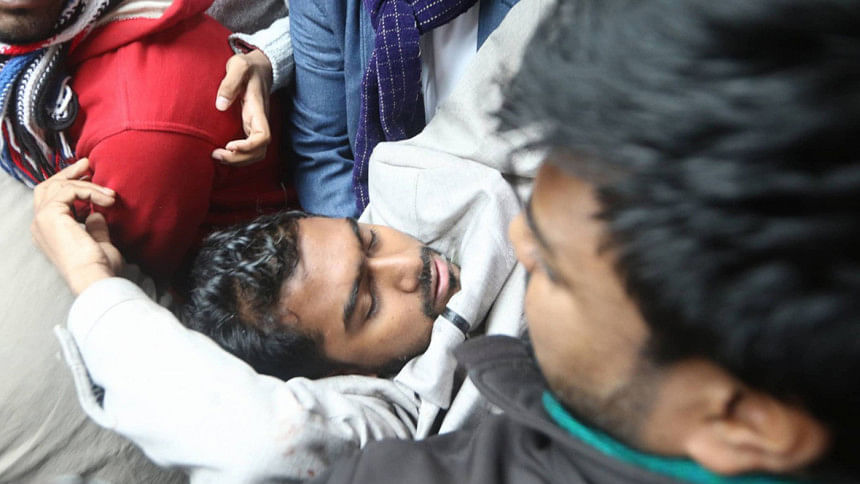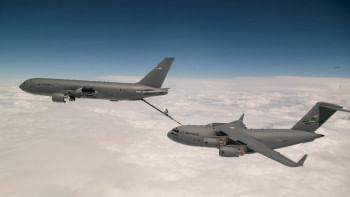Student politics and Ducsu: O tempora o mores!

It is not hard to detect the deep sense of remorse in the writer of the article, "Incubator of democracy or lessons to subvert it?" It was carried in this paper on March 11 in the op-ed pages marking one year of the Ducsu election. The piece is a lucid commentary by one who has dedicated his life to education, on the illustrious past of students' politics in Dhaka University. It is also a rather rueful prediction of the future state of students' politics, and of the institution as a whole, which at one time was known as the Oxford of the East, and the Dhaka University Central Students Union (Ducsu), earning rightly the honorific of the second parliament of Bangladesh.
It cannot be lost on those that value democracy and regard the period students spend in the highest seat of learning, as the period of gestation of their democratic mind. The Ducsu election in 1990, held under a pseudo-democratic government headed by a military autocrat, was a much-maligned period of our history. And what is inexplicable is the fact that in the 28 years between then and March 2019 during the democratic governments of the time and the much-vaunted democratic era, not a single election to the central students' body of DU was held. And even this election was held after a Supreme Court order, delivered in January 2019, made it mandatory for the DU authorities to hold the election.
One wonders what the objective conditions were that stood in the way of the democratic governments allowing the students of DU to exercise their right to choose as to who amongst them would represent them and put forward to the administration their views on issues that concern their welfare and interests directly.
The Ducsu election of 2019 had evinced keen interest in all quarters. In fact, the print media and this newspaper in particular had exhorted the authorities in a series of editorials in the months preceding the election to ensure a free and fair atmosphere for voting. What eventually transpired by way of election mirrored, regrettably, very realistically the national election in many ways. That the election was fraught and going down that way was evidenced in many of the decisions and actions of the administration topped finally by the announcement imposing a limit on the number of journalists each media house would be allowed to assign to cover Ducsu polls.
For those who have had the good fortune of passing through the portals of this once famous university, the happy nostalgia is marred by the vision of an ominous future that the current state of students' politics portrays. After being in a near moribund state for the good part of three decades, not only has the prospect of a healthy students' politics receded even farther, the only forum of the students to practice the precepts of democracy, and being nurtured in what the author of the article calls, incubator of democracy, the Ducsu, has had the last nail put in its coffin after the much delayed and eagerly anticipated elections to the student body in March last year—marred by alleged rigging which was confirmed by the media and the central body made dysfunctional by the BCL with the administration in connivance.
The results were as expected except that of the post of vice president. The stigma of a rigged Ducsu election, not even witnessed during the Pakistan era, was stamped on this election too. And as one observer put it, the conduct of the election by the DU administration and the teachers associated with it, was a classic lesson on how to rig a student body election. It is a pity that the teachers conducting the elections, the moral guides of the students, shed their principles, ethics, scruples and human values only to ensure victory of the ruling party student body and thereby became complicit in the immoral act.
The optimism was short lived. A lot of hope was pinned on the election primarily to restore the state of students' politics to its glorious past. In spite of the BCL winning all the major posts in the central body and in the halls, the newly elected body has not been allowed to function at all in the last one year. In fact, everything was done to make the body non-existent. And that is because the most aspired for post, of the vice president of Ducsu, did not go to the BCL candidate. It was bagged by a candidate who had led the quota movement and who himself was subject to physical assault for his role in the movement.
The purpose of the student's union is to have a union free from influence of not only the university authorities but also keep aloof from political control. That lofty ideal has long been thrown out of the widow with student politics being misappropriated by student wings of political parties. The much-hoped for change with a VP not belonging to any party but having the support of the majority of students was dashed when the VP himself was subjected to nearly a dozen physical assaults and intimidation in the last one year, not only in Dhaka but even outside. He was even barred from attending his office on several occasions. Why so when the VP, Nur, was "blessed" by the PM when the former met her in Ganabhaban after the election? Are we to believe that only the BCL has the right to run student politics in DU? Anybody not in its favour will be anathema? Unfortunately that is the bitter reality and nothing will change unless student politics is freed from political control, and unless the university administration sheds its political hat and act in a nonpartisan manner. Until then Dhaka University's credentials as the incubator of democracy, whose students were at the forefront of our national movements since 1947, and initiator of many of those movements, cannot be restored.
Brig Gen Shahedul Anam Khan, ndc, psc (Retd) is a former Associate Editor of The Daily Star.

 For all latest news, follow The Daily Star's Google News channel.
For all latest news, follow The Daily Star's Google News channel. 



Comments